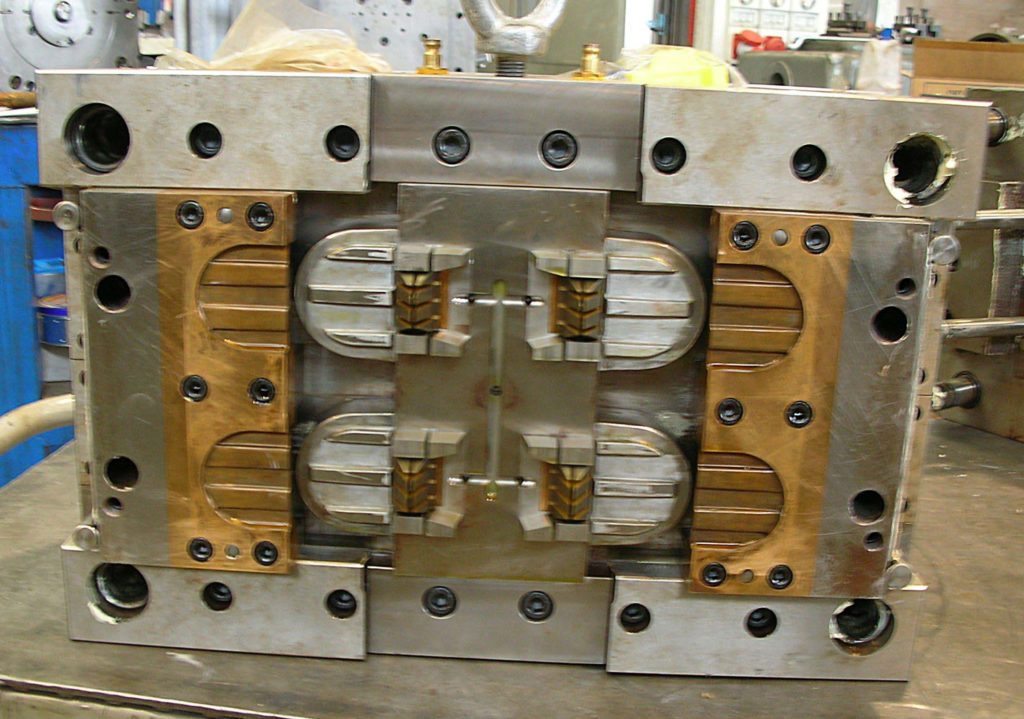A plastic injection mould maker says it guarantees full reliability for its customers, thanks to the role that specialist VISI software plays in its design and manufacturing processes.
CMP Bresso produces moulds for a variety of industrial sectors, including automotive, medical, sport flooring and electronics. And at the turn of the Century it became one of the first companies in the Piedmont area of Italy to produce synthetic corks for bottles of wine.
Company owner Walter Bresso says that for the corks, they produced multi-cavity moulds, compared to the trend at that time of using single-screw moulds. A challenge in another industry sector came with the construction of moulds for plastic tiles in sports facilities, which are resistant to atmospheric agents, and can be installed on any foundation. He says VISI played a vital role in creating a product which is now widely used in international markets.
“The customer brought us a plastic tile made by an American company and asked to produce something similar. We designed a complete new tile, called Gimmy. It’s a modular, frost- and impact-resistant flooring that’s non-toxic, anti-bacterial, and made of completely recyclable technopolymer plates.”
And those jobs were child’s play with VISI…so much so, that Walter Bresso describes the software as “a good mate that’s always near us, and is helping us constantly in everyday technological challenges. Simplicity and efficiency are two common features that can be found in all VISI solutions.”
CMP Bresso has an internal mould design unit, led by Walter’s sister, Daniela Bresso. The company operates a number of 3D CAD stations using VISI Modelling, and a CAM station working with VISI Machining 2D and 3D to create toolpaths. Daniela Bresso says: “We’ve been using VISI for over 20 years. Each project usually starts when we receive a 3D file such as IGS, Step and Parasolid, and we create rapid prototypes in Acrylonitrile Butadiene Styrene, which is a common thermoplastic polymer, using a 3D printer.”
Once the customer is happy with the prototype, the mould making process begins for the ongoing production. To achieve this, the company uses VISI Modelling, a powerful solids and surface modeller combining the Parasolid market standard for solids with Vero Surface technology, analysis tools, and 2D drawing. “It gives us complete flexibility in the construction, modification and correction of complex 3D models,” she says.
VISI Machining 2D provides her team with a practical and intuitive solution for programming their 2.5 axle machine tools, and controls the positioning of the fourth and fifth axis where required. “The Feature Recognition option automatically creates intelligent and reliable toolpaths directly on the solid geometry. And the Operations Manager has a simple tree structure which shows us the various processing steps along with full tool data.”
The operator easily defines machining parameters, cutting conditions and tool holders, and the availability of multiple origins allows imported geometries to be quickly oriented around any reference, even for multi-axis machining.
“And VISI Machining 3D creates sophisticated and intelligent 3D toolpaths for machining even our most complex models. Its dedicated high-speed machining and smoothing functionality to soften the toolpath allows us to generate highly efficient ISO paths. It gives quick calculation times, and the algorithms for optimising the NC code considerably reduce machining time.”
Originally established in 1968 as a mechanical workshop producing precision equipment, it diversified into making plastic injection moulds for the Olivetti group seven years later…and is still a leading supplier to them.
[su_box title=”About Vero Software” box_color=”#89b9de”]Hexagon is a leading global provider of information technology solutions that drive productivity and quality across geospatial and industrial landscapes. Hexagon’s solutions integrate sensors, software, domain knowledge and customer workflows into intelligent information ecosystems that deliver actionable information. They are used in a broad range of vital industries. Hexagon (Nasdaq Stockholm: HEXA B) has approximately 17,000 employees in 50 countries and net sales of approximately 3.1bn EUR. Learn more at hexagon.com and follow us @HexagonAB.[/su_box]
Walter Bresso says his company is not typical of traditional mould makers. “We’re able and willing to solve significantly complex projects.” He says this is particularly true of their capability to create moulds for thermoplastic products which were originally made of metal. “A metal component can’t be reproduced exactly as it is, in plastic, so we redesign it, and then use VISI to create the mould to ensure the part does exactly what it’s supposed to.”
Another solution to a complex issue involved co-moulding a metal element of a car window component for Ford. “Normally, that type of component is made of metal and coated with a primer – an interface agent that binds with the gasket rubber. The issue was that painting, drying, sticking, along with the danger of chipping and peeling, meant that the product wasn’t reliable, so Ford asked us to come up with a solution.”
CMP Bresso co-moulded the product by covering the metal with material compatible with the rubber gasket. “When it’s inserted into the mould, the rubber sticks and becomes a single piece. Thanks to our experience, we managed to create a skin of only three tenths of a millimetre that wraps the entire piece. Torsion tests showed the device exceeds the limits imposed by Ford, by eight times.”
VISI programs their milling, and machining centres, producing about 30 moulds a year, 496 x 496 mm in size. The moulds are then used on eight injection Arburg, BM and Ripress moulding machines.
Concluding, Walter Bresso says VISI is an important part of the company’s ‘partnership’ with its customers. “We’re able to offer a full service, including design, production, rapid prototyping, mock mould, mould assembly and plastic injection moulding across a wide range of industries.” ′






